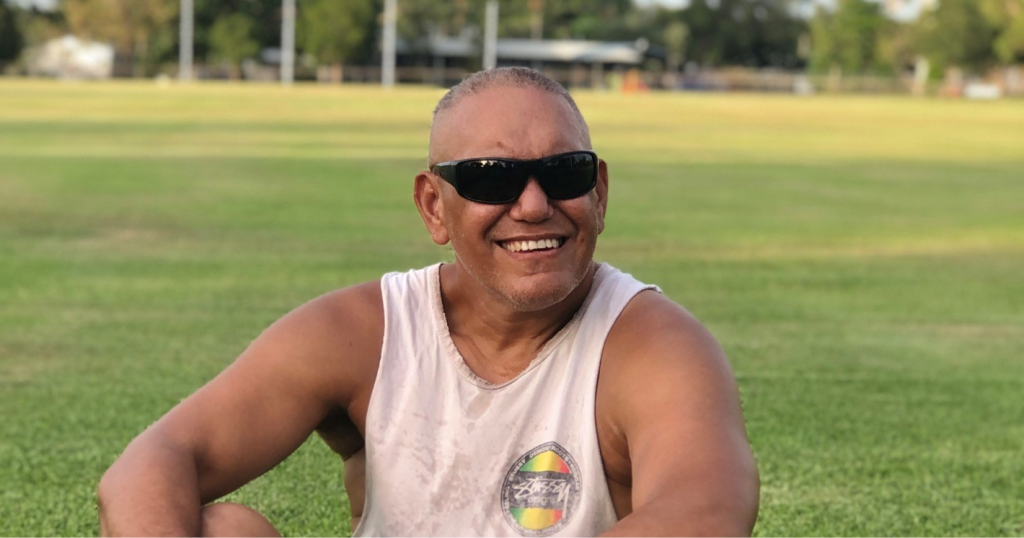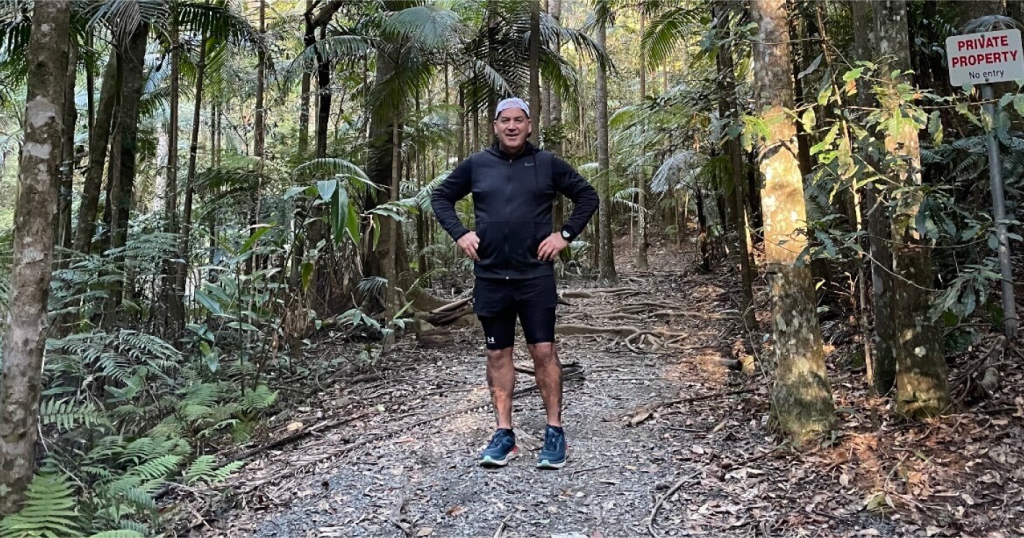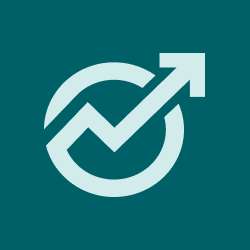Jye Murray, 28, is from Cowra on Wiradjuri country, and currently lives on Worimi country in Nelson Bay, and works as a physiotherapist.
I’m one of those stereotypical country kids who played pretty much every sport growing up. I played a lot of cricket in the summer but my main sport was rugby league. My dad, brother, uncle and my cousins were all into footy, and I played as long as I can remember. I was lucky that my dad, who’s Aboriginal as well, was a positive role model for exercise. He was right into the gym, and I joined him as soon as I was old enough. I also played a high level of footy from 16 to 18, so I got a bit of exposure to that semi-professional environment.
But when I was about 16, I tore my ACL, and I had a 10-month stint of rehab in and out of physios, gyms and working with exercise physiologists. I always thought I would play in the NRL, that was my dream, but when I had that injury, I had to work out a backup plan, which was physiotherapy. I love that exercise gives me something to work towards, that I know is making my life better. I know by going to the gym or going for a run or a swim, even though it’s just that one day, if you stack that day on top of another and another, it’s really positive. It’s also really good for my mental health. I feel great after I exercise, and it’s a part of my routine, so it makes me feel like I’m on track.
Unfortunately, because of many complex reasons, like historical abuse, intergenerational trauma, disparities in the social determinants of health, the history of our people, stereotyping, and racism, Aboriginal and Torres Strait Islander people have been led down the path of participating in certain behavioural risk factors at higher rates, that put us at risk of having poorer health in general. Then the healthcare system, the fitness industry, the nutrition industry, all of it is built upon Westernised values that are different to our own.
“We’re trying to fit ourselves and our values into a box that’s very different to what we’re used to, and it’s clearly not working.”
– Jye Murray
There’s a huge misconception that we’re in this position of our own doing, that we like to eat badly, we like to drink, we like to smoke, we don’t like to exercise. That it’s all our fault. But we’re starting from a significant disadvantage when trying to make some changes to our health because of a myriad of really complex factors. It’s going to be us who need to take responsibility for our health and try and make some positive changes. What I try and do on social media is create content that brings culture to it and brings our values to it – how can we start exercising but do it in a way that is using our values or more towards our way of life.
Try and combine a connection to culture or a connection to country with exercise by going out on your homeland or a place of ancestral significance. You’re going to get the effect of the exercise, but you’re also going to get that connection to country, that connection to culture, which also then has a massive impact on our health and wellbeing as well, particularly social and emotional wellbeing. At home I like to walk around the river or walk out in the bush. Pick something you can achieve and something you like to do, something you can sustain. Just start off by doing a half an hour walk every day with the kids or with your partner and do that outside. Anything is better than doing nothing at all. You need to do this stuff. You can’t really sit around and hope that things will get better because it just doesn’t work like that. Exercise is something we all should be doing every single day of our lives in some regard.
Follow Jye on Instagram and TikTok
John Ah Mat
John Ah Mat, 47, is a Wagadagam/Gurindji /Arrernte man living on Larrakia country, and works as a Senior Project Officer in Northern Territory Health in the First Nations Health and Wellbeing Division.

I was really active growing up. I played footy, rugby league and rugby union. I played sport until I was in my mid-30s and exercise dropped right off. After a relationship breakup, I had my four kids full-time. I started to get out of shape because I didn’t have a routine. I spent a few years working out how to be a single parent, and my weight had gotten out of control. My youngest was about three, and I was like, “Oh hell, I’m going to have to start looking after myself if I’m going to be able to kick the footy with him, to take him down to ride a bike, to go to the park, to go to the beach.” All of those things I like to do with my older kids. I needed to do something that was going to be sustainable over time.
So I started walking. I thought about the best time for me to exercise. The kids slept until 7am, so I could get up at five, walk, get back, have enough time to relax a little bit and start getting everybody ready. I’d just walk around the park until my legs got sore. The body was getting used to being active again, so the legs were seizing up, the back was seizing up. I did that until I could get a bit of distance. Now, I walk pretty much every day. I do about nine kilometres in the morning. It’s a good opportunity to clear my mind and do a bit of problem-solving.
I also knew I needed to make sure that I was eating healthy and I wasn’t overeating. Then, I got back into doing weight training. My cousin’s got a few weights around his house, so I’ll go to his house and get in a 20-minute session with him. That’s all we need. It’s good having that other person there that you know you might let down if you don’t turn it up. It’s good to know that other person is going to support you, to help push you along the way, to bounce ideas off – whether it be about training or life.
The weight dropped off super fast. Now I can be active with the kids – ride bikes, kick the footy, walk down the beach. Before, I was struggling to tie my shoes up.
Now, I just feel better. It’s rubbing off on my kids because when I’m going for a walk or for a ride, they’re with me.
– John Ah Mat
I am role-modelling the behaviours and choices that contribute to a healthy lifestyle, not only to my kids but other family members and friends. Now, I’m maintaining all of that because it’s a marathon. I have to keep these habits up now.
Thinking, “Oh, I need to go to the gym, and I need to be there for this amount of time, I don’t have that much time” holds some Aboriginal and Torres Strait Islander men back. Well, you don’t actually need to be there for an hour and a half. You don’t need to even be at the gym. You can do it anywhere. We trained at a few playgrounds, and there are those wooden logs that fence the boundary – I was doing push-ups, dips and step-ups on those. You need minimal equipment to do a workout. It comes down to your imagination. And you’re not in competition with anybody else. You’re only in competition with one person, and that’s yourself. You don’t need to be worrying about what any other person’s doing.
Jack Bulman
Jack Bulman is a Muthi Muthi man from New South Wales, currently living in Queensland, and is the CEO of Mibbinbah Spirit Healing.

Growing up, I played a lot of AFL at an A-grade level, and cricket as well. When I finished playing footy, I sort of lost my way with exercise a little bit, to be honest. My cholesterol got a little bit high, and my blood pressure got a little bit high, and I was thinking, “I’m fit, why me?” I’ve always been fit all my life. Because I am Aboriginal, they wanted to put me on medication for my cholesterol and blood pressure as a prevention thing.
“I decided I didn’t want to rely on medication when I knew I could do something myself to be healthier and stronger.”
– Jack Bulman
So, I started walking, and then running, and, sure enough, I lost around 15 kilograms and regained my health. For me running is like meditation. Especially on trail runs. You get the birds speaking to you as you go along, see beautiful kangaroos. It’s a good time to reflect on things and see what a beautiful world we really have. This connection through running motivated me to lead a new challenge, to empower mob to connect for health and wellbeing. I’m the CEO of Mibbinbah Spirit Healing. Mibbinbah is an organisation we started in 2007. It’s evolved over the years, but we run programs, workshops, and gatherings right around Australia to help Aboriginal and Torres Strait Islander people explore their identity and wellbeing. Knowing the power of physical activity for my own health inspired me to start the Move for Mibbinbah challenge.
In August 2022, our first challenge was to run for 24 hours to raise funds for the programs that Mibbinbah offer in community. We raised almost $8,000 and me and a couple other crazy fellas ran for 24 hours. In the first challenge, I ended up running 165 kilometres. So many beautiful community members turn up to support it, dads pushing their kids in prams, and kids riding their bikes alongside. Supporters filling our drinks, feeding us, and helping us stay out there for the whole 24 hours – it was truly a team effort. We saw how well people connected with the challenge – it brought people together. From that, we’ve encouraged people to Move for Mibbinbah each month for some self-care, to get people to think about their health and well-being, and to recognise that those things are important. We’ve certainly been able to do that with our hashtag #Move4Mibbinbah, which people use on Strava, Facebook and Instagram.
I’m already in training for our next Move for Mibbinbah event, which will bring community together and raise funds and awareness for Mibbinbah. I’m training five days a week for our next event in February, a lot of running, a lot of walking, and also strength exercises and the odd ice bath – another one of our Move For Mibbinbah challenges. We get so many messages behind the scenes that say, “Oh, you’ll be really proud today, I walked to work, or “I rode my bike,” or “I’ve done this, and I’ve been following the movement and it’s made me think.” CJ who is 62, he’s now walking and doing 10 kilometres every day. So, it’s been a real eye-opener for him. We’ve got another lad in Darwin who’s lost a whole heap of weight who now rides his bike 50 kilometres every time he goes out now.
You do have to put a little bit of effort into exercise, but my advice would be to start slowly. That might be walking every second day. If you want to start running, run for two minutes and walk for one, that sort of thing. Slowly build up because it takes a while for us to get back to fit. And get a check-up at the doctor to make sure everything’s ok before you start exercising again. Join me on the Mibbinbah journey – you’ll find us on Facebook, Instagram and Strava – together, we can connect and #move4mibbinbah.












